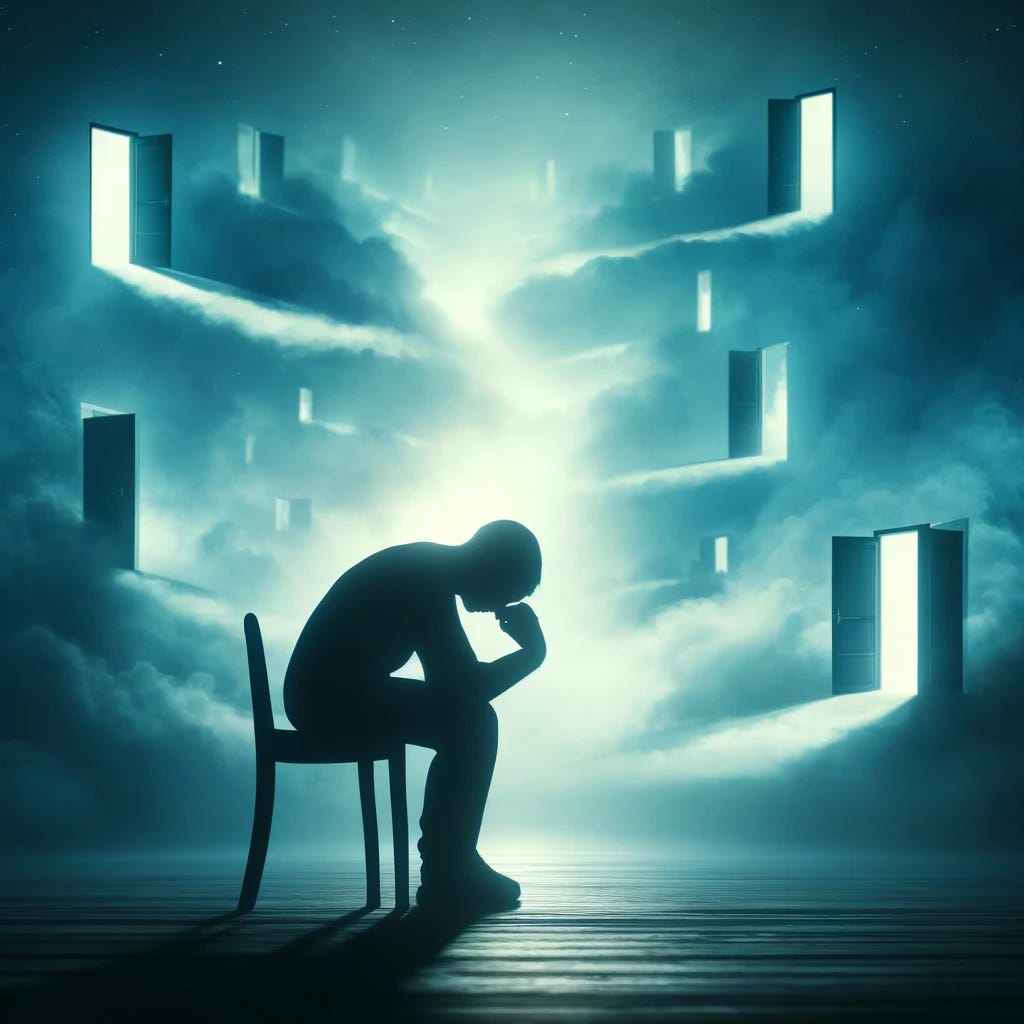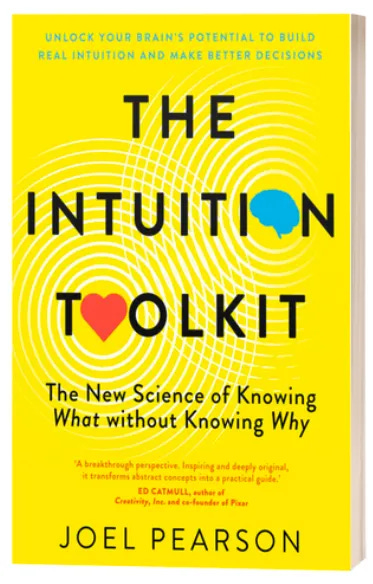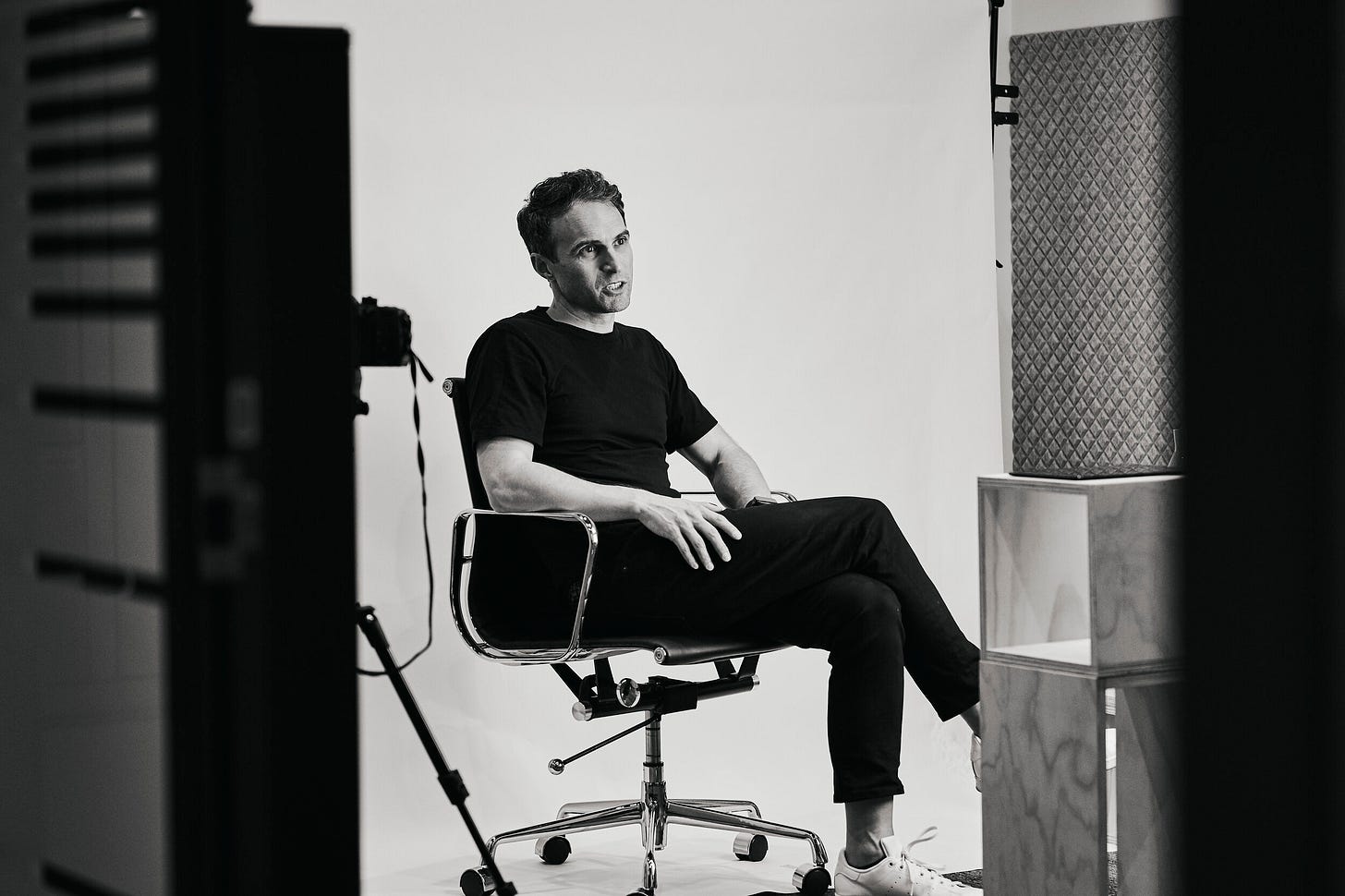You're a slave to unconscious forces - Free will it's just an illusion
Curated, Science-Driven Insights into the Brain.
Future Minds newsletter breaks down the science of the mind and brain into short and easy-to-digest insights and actionable take-homes. Sign up and join the many others who receive it directly in their inbox.
Think you have free will? Pay close attention the next time you go shopping.
We do not have any free will; it's merely an illusion. We simply don’t notice the difference between when we have control over our decisions and when we don't. If this idea makes you feel uncomfortable, strange, or even worried, you're not alone.
I've discussed this topic on a few recent podcasts, most recently with Sarah Wilson and before that with Josh Szeps.
There are many angles from which to approach the free will conversation. Many people talk about the various factors that shape who we are and what we do – from our genetics and prenatal hormones to our childhood upbringing and schooling experiences, among thousands of other influences. Each of these chips away at the possibility of free will. I'll revisit this idea shortly, but first, let's explore a different perspective.
Before we begin, consider sharing this post to support and grow this insightful Newsletter.
A warning to the readers - this post contains a story that some find violent.
Image was originally based on the art of Oh America by Gee Vaucher.
We are constantly manipulated, and we don’t even notice
Think back to the last time you went shopping at a supermarket. Perhaps you were making your way to the checkout to pay and leave when suddenly a row of delicious chocolates caught your eye. These chocolates were carefully placed at eye level, with packaging meticulously designed to convey quality, and enjoyment, and create positive associations through classic psychological marketing tricks. At the very last minute, you grabbed a chocolate bar and tossed it into your shopping basket. We are manipulated like this all the time, every time we visit a supermarket.
Millions of dollars are invested in carefully planning where products are placed and how they're positioned at eye level, all to trigger impulse purchases. You may have also heard of cognitive biases, nudges, or their darker counterparts, sludges. These are simple ways of exploiting how our brains work to manipulate our behaviour. They are widespread – almost every website employs one or more of these subtle, often unnoticed manipulations to nudge you into making a purchase. While I won't go any deeper into the nearly endless list of potential nudges, suffice it to say there are many, and they do bias behaviour in very clear ways. E.g. the default bias, where we tend to stick with the pre-chosen option in forms or online checkouts, is one example.
“My point is that we are manipulated and controlled every day when shopping, browsing online, and in many other contexts, yet we don't feel a thing. Put another way, we are blissfully unaware that we are being manipulated – that our free will is being undermined.”
My point is that we are manipulated and controlled every day when shopping, browsing online, and in many other contexts, yet we don't feel a thing. Put another way, we are blissfully unaware that we are being manipulated – that our free will is being undermined. We cannot feel it when we are being controlled in this way. And yes, "control" is the right word; these manipulations control us by taking advantage of how our brains are wired to make us do certain things or avoid others. Now, there are hundreds of psychology and neuroscience papers demonstrating that humans, and indeed other animals, can be biased and primed for certain behaviours. I could take you into my lab and prime you to make particular choices, and the point I'm making is that you wouldn't feel it – you wouldn't know when you're being primed or manipulated and when you're not. All these examples, whether in the lab, the supermarket, or online shopping, illustrate that we cannot feel our free will; we cannot sense when we have voluntary control over something and when we don't. And because of this, it should become clear that we cannot feel the difference; that we cannot feel a lack of free will.
“…we cannot feel the difference; we cannot feel a lack of free will.”
That's right, dear readers – we feel like we have voluntary control and free will, but we cannot feel otherwise. We can induce the experience of someone's arm moving by sending a small electrical signal to the brain, but this feels more like a twitch. When it comes to decision-making and the choices we make, we cannot feel a lack of free will. All of this leads me to conclude that free will is an illusion we pretty much always have. We can manipulate more control versus less control, and people don't know we're doing that.
All of this leads me to conclude that free will is an illusion we pretty much always have. We can manipulate more control versus less control, and people don't know we're doing that.
I'm working towards a conclusion here that all we feel is a sense of volition, a sense of free will; we don't have the sensation of anything otherwise. Following on from this, it becomes obvious that how we feel about our decisions does not inform the discussion about whether we have free will or not. If we can't feel all these examples of being manipulated into choosing or buying something, then our feelings cannot inform us as to whether we have free will or not.
Neuroscience Insights - your unconscious is the decision-maker
Now, I want to delve into some of the neuroscience that speaks to the free will discussion. There are now many experiments dating back to the classic Libet experiments using EEG, and the many modern-day fMRI versions which are similar. We've run such experiments here in my lab. The basic take-home message from not just our work but the work of many others is that we can decode what someone is going to decide from their brain signals up to about 11 seconds before they report that they have made that decision. That's right, 11 seconds! 11 seconds is an eternity when it comes to the brain, which tends to operate on the scale of milliseconds.
Now, it's true that in these experiments, it is a very confined and controlled situation, with people often deciding between two simple options. The level at which we can decode these choices is not 100%, meaning there is still room for other mechanisms on top of the neural signals we can decode. But the theme running through all these experiments is that there is a clear signal that exists for quite a long time before people feel like they have come to a decision. What is this signal in the brain? Does it mean that the decision has already been made unconsciously by some part of our brain, and it's only later on, once that signal becomes strong enough, that we become aware of this choice? It certainly looks like this from the data, it can seem like the choices are made unconsciously before we are aware of making them.
“Does it mean that the decision has already been made unconsciously by some part of our brain, and it's only later on, once that signal becomes strong enough, that we become aware of this choice? It certainly looks like this from the data, it can seem like the choices are made unconsciously before we are aware of making them.“
And this is only looking at the activity of the brain in the few seconds leading up to that choice. Once you start layering in the wiring of the brain, what you did that morning, whether you slept or not, what kind of upbringing you had, your education, the politics of your family, how much food you had, whether you drank coffee or alcohol that morning, and a hundred other things, you are not left with much freedom. And again, as we learned earlier, we are blissfully unaware of these things taking away our volitional freedom of choice, aka free will.
Does it really matter?
But here's the thing: does this matter, and should it matter? And this is where the waters get a little murky and hard to navigate. From one point of view, I feel like it doesn't matter that we don't have free will; we don't know what that would even feel like because we feel like everything we do is infused with freedom, so it doesn't matter whether we have free will or not. What difference does it make?
Enter the legal system, where all of a sudden it does matter, and matters a lot. If we can show in neuroscience that humans don't have free will, that they're being manipulated, then the legal system would be forced to take the responsibility off of the individual in question. There are many intriguing cases of people having a brain tumour or abnormality in their brain which induced radical changes in their behaviour. Indeed, one of the most poignant examples of these is the famous case of Charles Whitman, who in 1966 took an elevator to the top floor of the University of Texas tower in Austin and began to fire indiscriminately from the deck at people below, killing 16. What transformed this 25-year-old Eagle Scout and Marine into one of America’s first and deadliest school shooters? His autopsy later revealed he had a brain tumour pressing on his amygdala, a part of the brain that is responsible for emotion and fear.
Whitman wrote the night before doing this “It was after much thought that I decided to kill my wife, Kathy…I love her dearly, and she has been as fine a wife to me as any man could ever hope to have. I cannot rationally pinpoint any specific reason for doing this.”
This and other cases like it have brought people to the conclusion that in cases like this the horrific behaviour was not Whitman’s fault, but the ‘fault’ of the tumour. When a judge or jury decides that someone's behaviour is due to a tumour, and it is not their fault, it is the cancer's fault, the tumour's fault, the brain abnormality's fault – where do we draw the line between a tumour and simply having an unusual brain?
This, my friends, is where things get very dicey and complex in the legal and philosophical world. To sum this up, as my friend Josh Szeps says, it's "tumours all the way down." Which means, how do we go from a tumour in someone's brain absolving them of responsibility for behaviour, through to everyone having their own unique brain "fingerprint," – our brains are all very different, with different shapes, sizes, degrees of gyrification (folding of the cerebral cortex), and so on? What if the anatomy of our brain is responsible for illegal behaviour? What if the particular ratio of neurotransmitters or hormones in our brain is the thing that's causing some illegal behaviour? Where do we draw the line between simple brain anatomy and disease, changes in brain anatomy can be thought of as a disease in some cases. In other words, if it's the fault of our biology and brain, then it feels more comfortable to let people off the hook and not punish them in the same way we would punish them if they had full volitional control.
But as we have said above, it seems that none of us have full volitional control. In other words, it's "tumours all the way down"; we're not responsible for that behaviour. So, this does have clear, poignant, and dramatic implications for the legal system. If even half of our behaviour is not, "our fault," then how should we punish people? How should we think about imprisonment? We still need to take dangerous people off the streets and prevent further incidents, but punishing someone for actions outside their full control becomes morally and philosophically problematic.
Free will and mental health
Another important point here is that feeling volitional control and a sense of free will is vitally important for our psychological well-being. One symptom present across many mental health disorders is a reduced feeling of agency and self-determination over one's thoughts, emotions, and actions. From depression to addiction to anxiety disorders, a diminished sense of being the conscious source of one's behaviour is very common. Indeed, the concept of learnt helplessness is an important cornerstone to many theories of mental health and behaviour.
Research indicates this perceived lack of volitional control and autonomy can significantly undermine overall mental health and well-being. Multiple studies have found that when people feel like they can't shape their circumstances through free choice, it predicts higher levels of helplessness, hopelessness, and even suicidal ideation. Conversely, a strong internal locus of control - the belief that one has control over important decisions and life outcomes - is associated with greater resilience, motivation, and happiness.
“Multiple studies have found that when people feel like they can't shape their circumstances through free choice, it predicts higher levels of helplessness, hopelessness, and even suicidal ideation.”
The feeling of making free choices that aren't mere products of unconscious neural processes appears to be deeply psychologically nourishing for humans. Even if it is an illusion generated by our brains, the subjective feeling of authoring our thoughts and actions seems to provide a sense of meaning, mattering, and capability that buffers against despair. To completely divest ourselves of this feeling of free will could potentially be devastating from a mental health standpoint.
So while the rational analysis of empirical data may suggest free will is more fiction than fact, our minds may require the perpetuation of this fiction to remain robustly healthy and thrive. Experiencing the absence of free will produces profound psychological disturbance. From this perspective, even if free will doesn't truly exist in any objective sense, the human psyche may depend on the simulation of it continuing to run.
In summary, the sense of being the conscious source of our actions, no matter how implausible upon closer inspection, appears to be a psychological need for optimal mental health and flourishing. Surrendering the felt experience of free will may not just be philosophically disorienting, but clinically perilous to our collective well-being as well.
In case you miss it and related to this topic please read “In Sync: How Social Contagion Shapes Our World”.
Mental Meanderings
Do you agree with my idea that free will is an illusion? Why or why not? Can you recall instances in your daily life where you were manipulated or influenced without realising it?
Do you think the legal system should consider the lack of free will as a mitigating factor in criminal cases, or should individuals still be held responsible for their actions?
What are your thoughts on the "tumours all the way down" argument, which questions where we draw the line between biological factors and personal responsibility?
How do you feel about the potential implications of the neuroscience experiments mentioned, which suggest that our decisions are made unconsciously before we become aware of them?













Are people really unaware? Have I cracked the matrix? I can see the layout, the product placements, the displays at the tills etc., but I just see them for what they are and I’m not tempted. I think it’s because I use a shopping list and stick to it. I also walk directly to the aisle where the next item is, and I think that disrupts their planned flow around the store
Great discussion. A good counterpoint to the reading I have been doing on consciousness. I think of the space between the internally generated biological signal and our response, and what we do with it, as a reflection of our degree of consciousness/free will. Without consciousness there can be no free will. With it we have the chance to apply will, but I wouldn't call it free. ;-)